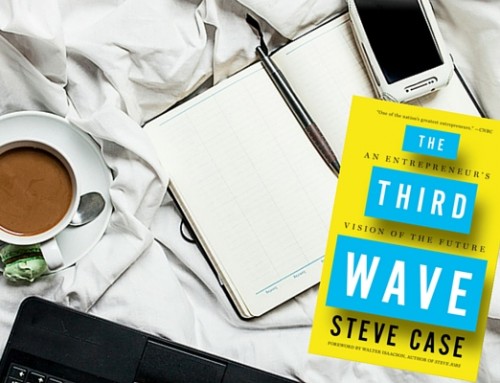In the early days of starting up, the ability to scale is overrated. “Scale,” in case you haven’t heard the term, refers to the concept that there are processes in place that are fast, cheap, and repeatable because there will soon be millions of customers who generate billions of dollars of revenue.
For example, if Pierre Omidyar had to test every used printer offered for sale, eBay couldn’t scale. If Marc Benioff had to make every sales call, Salesforce.com couldn’t scale. If James Hong’s parents had to check every picture to see if it was porn, Hot or Not couldn’t scale.
Holding yourself to a mass-scaling test in the early days is a mistake—putting the proverbial horse before the cart. This is akin to wondering if you should start a restaurant because it may be impossible to scale the perfectionism of an executive chef for multiple locations.
How about first ensuring that people within in a twenty-mile radius like the food before working about scaling the restaurant? That is, see if the business will work at all. For example, a company that I advise called Tutor Universe provides tutoring service via smartphones. Think of it as “Uber for tutoring.”
The long-term plan was that students could ask questions about any topic and receive help in under fifteen minutes. However, in the beginning, a critical mass of tutors for every subject didn’t yet exist. Many startups face just such a chicken-or-egg challenge: if you had enough tutors, you’d attract enough students. If you had enough students, you’d attract enough tutors.
What do you do when you’re faced with this kind of challenge? The answer is simple: you cheat! You use your own employees to answer questions and hire tutors in the Philippines (highly educated, English speaking, and cheap) until you can reach a critical mass of a marketplace. Skeptics and inexperienced entrepreneurs might object: you can’t scale if you have to use employees or hire tutors because they are too expensive.
This might be true, but it doesn’t matter. What’s important is that you establish three key points:
- You can get the word out
- Students are willing to install an app
- They will pay for help.
Your priority, in short, is proving that people will use your product at all. If they won’t, then it won’t matter if you can’t scale. If they will, then you will figure out a way to scale. I’ve never seen a startup die because it couldn’t scale fast enough. I’ve seen hundreds of startups die because people refused to embrace their product.
This post is a tiny part of Guy Kawasaki’s latest book, The Art of the Start 2.0. Read it and reap…



This is a timely post. I am setting a launch date for next venture and the problem if scalability has been keep me anxious for some time now. But reading this – “Your priority, in short, is proving that people will use your product at all. If they won’t, then it won’t matter if you can’t scale.” – realigns my focus. I recall my first really successful business, and the one before that, and in neither case did I even give scalability a second thought. I hired on staff and outsourced as the need arose, but it never kept me from getting started started in first place. I don’t know why it bothered me so much this time.
One of the major musts of launching an app is promoting it as much as possible. You can have an incredible idea, but it’s useless without spreading the word.
Yeah I’m a great fan of the Lean Start Up idea…create a minimal viable prototype and test it out fast before going all in on scaling.
Launching is most important for any startup success, good article.
Pawan
www.bizzort.com
Thanks, for writing this article. I am in a startup collaboration space, and they are worried about scaling with my tutoring and test prep company. I wish they understand that education entrepreneurship is different than tech or other industries. In Nebraska not many education starts up are here.
Mr Bickov, that idea may be partly not hold good in every app case. For example, consider “Whats App” and their strictly zero-marketing policy. And yet it has over 600 million user worldwide. Incredible, right?
Thanks for this. I’m getting prepped for my first launch, and this idea of it needs to be everything keeps getting thrown out. Im creating a membership website with a bit of everything- and was convinced each part needed to be costly and top notch. But I have no idea if I really want this, no idea what the response will be. So I’ll start with the basics – and work on up from there.
It is the same idea of “i cant start a business because i don’t have the money to invest.” Just do it and fix on the way.